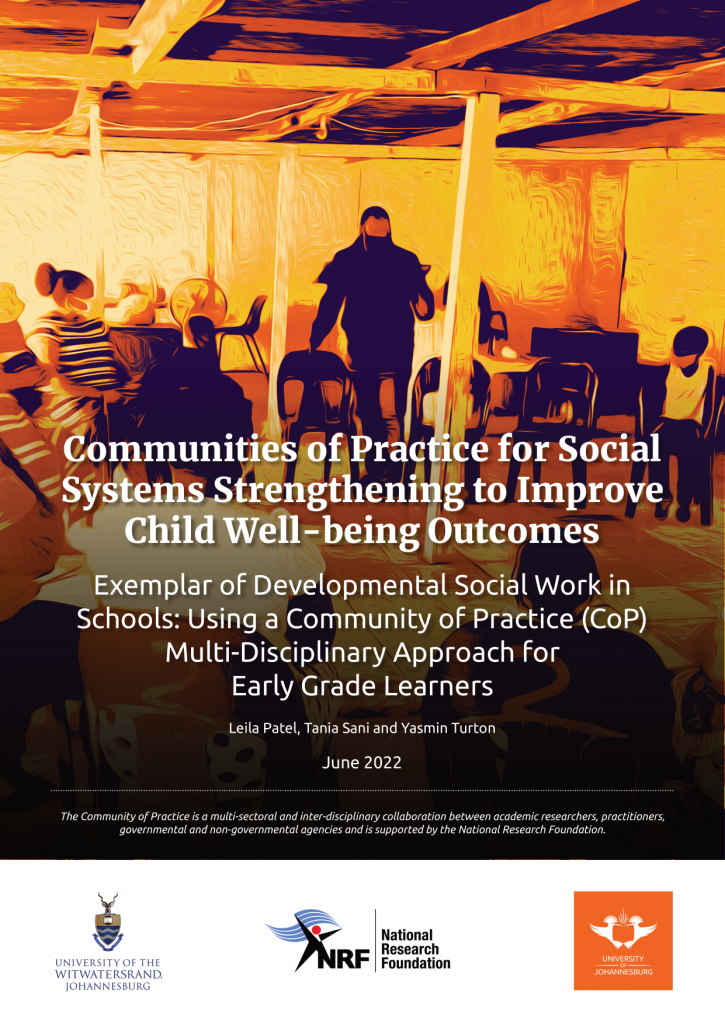Communities of Practice for Child Wellbeing
The Community of Practice (CoP) addresses the fragmentation of service provision to meet the needs of children and their families in a holistic way. This is a long-standing challenge due to the lack of cooperation and coordination between health, welfare and education sectors serving children and families at a community level. Meeting children’s needs holistically requires an inter sectoral and transdisciplinary response. The study aimed to understand what the most appropriate cross-sectoral interventions are to step up child well-being outcomes, and to see how these could be delivered across the health, education, and social welfare sectors. This intervention study was implemented and concluded over a two-year period (2020- 2021), and much has been documented about the various stages of the study This report documents the social work component of the CoP. It provides some guidelines to social work agencies and government departments involved in service delivery to children and their families. It is also a practical example of the implementation of the developmental social work approach within a school and community context. It demonstrates how innovative multi-sectoral interventions that intersect with individuals, families, public and community services can be delivered by a diversity of professions across the health, education, and welfare sectors. It further shows the role social workers can play in a multi-disciplinary setting, and by so doing, it makes a valuable contribution to social work within a school setting. Lastly, the intervention is illustrative of how South Africa’s largest cash transfers programme, the Child Support Grant (CSG) may be combined with complementary care services for children and their families.
As part of the CoP project, a Child Well-Being Tracking Tool (CWTT) was developed by the South African Research Chairs and academic collaborators in consultation with practitioners in the respective communities. The tool has been used to assess how children are faring in learning, health, nutrition and growth, resilience, and psychosocial well-being. It also assesses how the sampled children’s caregivers are faring in relation to their family and social functioning, child-caregiver relations, behavioural management, monitoring of children’s progress, engagement in schooling, meeting of basic needs, and mental health. The tool includes validated scales such as the Child and Youth Resilience Measure (child version) and the Strengths and Difficulties questionnaire as well as anthropometric measurements conducted by Public Health Care nurses. Learning assessments have been developed by the South African Research Chair in Education and Care in Childhood who is responsible for conducting the psychometric assessments with children. The tool also includes a pre-test and post- test in number concept development and reading, using standardised tools for the children in the sample drawn from the five-school population. This component is conducted by the South African Research Chair in Integrated Studies of Learning Language, Mathematics and Science in the Primary School.
The CWTT has been developed as a digital online tracking tool in which fieldworkers can enter information electronically, and vulnerable/ at risk children are red flagged for referral to appropriate community services. In the future the tool will also be used by the LLCoP participants, who will be able to see what the key challenge areas are for children in their school, to inform their planning and practice.
The CWTT is an innovation that could be widely deployed in schools to inform care and developmental assessments and intervention. The digital CWTT may be used by other groups/organisations/ schools/clinics who wish to replicate the programme.

